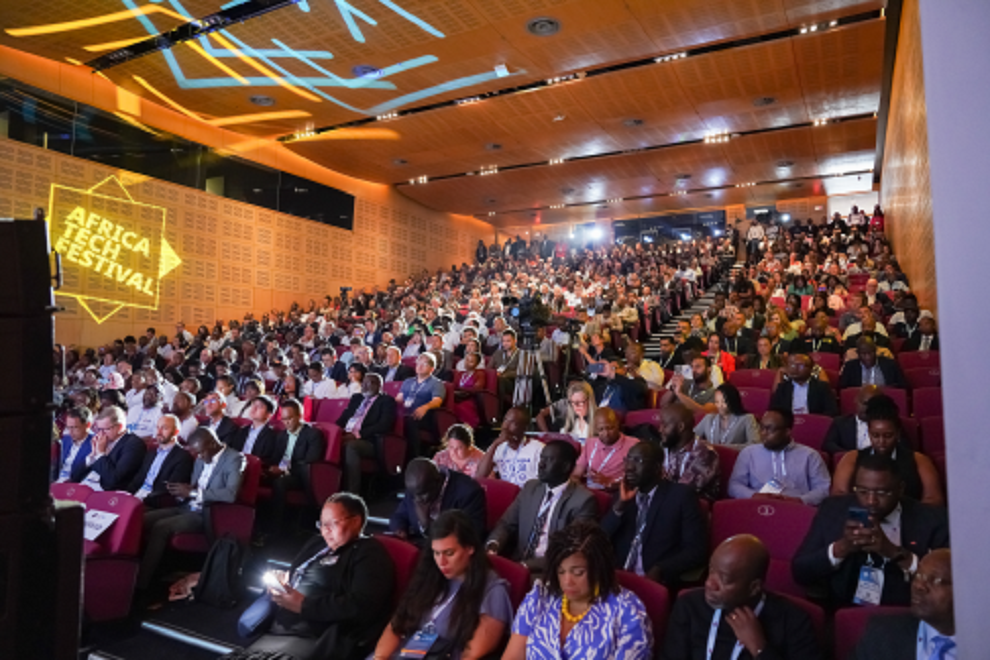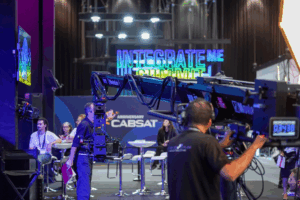Delegates at Africa Tech Festival 2023 in Cape Town were given a master class on the dos and don’ts of fundraising today, November 15, during several sessions at AfricaIgnite, the festival’s dedicated start-up zone. And surprisingly, establishing a good rapport with potential funders came out as the top tip.
Said Eric Osiakwan of Chanzo Capital: “Investors look for chemistry, and that comes from your storytelling. Ask yourself, How do I make a connection with a person who is less transactional? Tell them what you are doing and why you are doing it. After the initial connection, the rest becomes easier. But you have to tell your investor something that sticks out and stays in their mind—something unique.”
Joining the list of reasons why investors say “no”, is not having enough information at hand. “Last year, I spoke to over 100 start-ups who complained they were just not getting funding. I went on a road show to find out why, and investors say they just aren’t getting enough information during pitches. You have one shot in that room to present. There is no harm in, before your pitch, sending an email to see what they require from you,” said Lara Rosman of UVU Accelerate.
Keshni Morar, of Investable outlined the different types of funding. “Angel funders usually take the first level of risk, so they expect a lot, while VCs will first have a talk with LPs [limited partners] to see if there is potential for growth. Private equity investors look for a company that is stable, growing, and has a good income. The important thing is you have to choose the appropriate fundraising for the stage that your company is in.”
Sherif Nessim, of Jedar Capital, says timing is imperative. “You need to know when to start raising funds, what type of equity and value. And don’t raise more than you need. Also consider what amount you want to raise and how much equity you want to give away.”
Painting a picture for tomorrow requires investment today
Africa’s burgeoning creative economy was also spotlighted on Wednesday, with Felix Orevoghene Alaita, noting that a lack of funding for Africa’s creator economy is due to investors not believing in content made in Africa. Alaita, who is a retired army colonel, now turned tech start-up founder who also owns a creative hub, movie, and music studio in Nigeria, said: “The value you bring to government coffers is minimal. We must push to make the industry more visible. We can’t rely on the government to assist, so we need to align ourselves to the right people.”
But another hurdle for Africa’s creative economy to overcome is convincing those with deep pockets to see this sector as a viable and sustained industry that can deliver returns. “The creative industry is created by perceptions like how successful it will be, potential income… So, it’s difficult for people to believe in this. It’s not like a tangible thing like a toll road that you invest in,” said Derrick Ashong, CEO of TBTM.
During the panel discussion, Funding Gaps in the African Creator Economy, Ashong said all aspects of Africa’s creator economy are underfunded. “What you are in fact selling is your intellectual property. There’s a lack of capital overall because there’s a lack of understanding that investors are investing in intellectual property,” Ashong said.
Guy Kamgaing, StarNews Mobile CEO, agreed: The essence of entertainment comes from Africa. Once you understand just how much is coming from Africa, you’ll realize we have to create a lot of instruments to highlight the industry.”
Ashong suggests that African creators are too “hyper-local”. “One of the biggest missing elements, is the inability to create content that appeals globally. We have to make it more relatable, so we can aggregate enough audiences. You can’t tell me African creators don’t have the wherewithal to stand up globally …. Africa is an intellectual property factory.”
Kamgaing countered that it was important for creators to first make money in Africa before doing so abroad. “They need to make money in Africa first. Americans make their money there and the Koreans make their money in Korea,” he said.
Africa Tech Festival continues Thursday 16 November with yet more incredible content including the exciting AfricaIgnite Pitch Competition, which will see one lucky winner make their way to the USA to battle it out for USD 1 million investment in the final of the Pegasus Start-Up World Cup.












